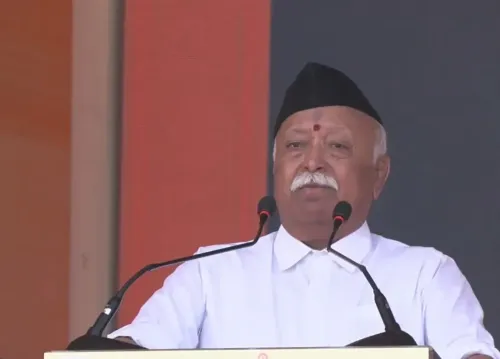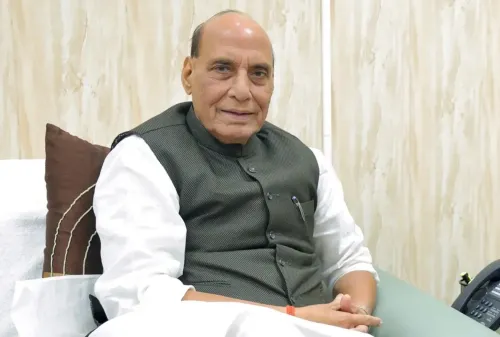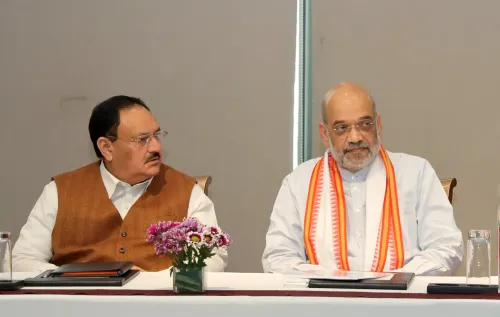The Role of Foreign Funding in Shaping India's 2024 Elections

Synopsis
Key Takeaways
- USAID funding has significantly impacted Indian politics.
- Funding patterns shifted drastically post-2014.
- NGOs received a larger share of funding compared to the government.
- Influence on media narratives has raised concerns.
- Critics claim a systematic attempt to sway 2024 elections.
New Delhi, Feb 20 (NationPress) The discourse regarding foreign intervention in India’s elections has spotlighted the influence of USAID funding, especially its connections to NGOs and media organizations allegedly aligned with political interests within the nation. Various reports indicate that the patterns of this funding and its noticeable change throughout different governmental regimes have raised suspicions about the external and direct effects on India’s political landscape.
According to data, during the Congress-led United Progressive Alliance (UPA) administration from 2004 to 2013, USAID disbursed a total of $204.28 million to the Indian government.
“In this timeframe, NGOs acquired a significantly greater share, totaling $2,114.96 million,” sources disclosed.
This financial support was purportedly intended for various initiatives promoting democratic development, education, health, and governance. Nonetheless, several political factions, including the BJP, perceive this funding as a strategy to manipulate elections within the country.
Sources reveal that the funding focus experienced a significant alteration following the National Democratic Alliance (NDA) assuming power in 2014.
By 2015, the Indian government's allocation had plummeted to merely $1.51 million, while NGO funding escalated, reaching $2,579.73 million.
This transformation in funding dynamics has been highlighted by critics as a sign of increasing external influence over India’s civil society organizations and their role in shaping political conversations.
A notable rise in USAID funding was recorded in 2022, particularly within the “Democracy, Human Rights, and Governance” sectors.
This coincided with Congress leader Rahul Gandhi’s prominent Bharat Jodo Yatra, a political campaign aimed at countering the ruling BJP and engaging with “disillusioned” voters across India, as per sources.
The timing of this funding spike implies that foreign-backed entities might have played an indirect role in advocating narratives unfavorable to Prime Minister Narendra Modi’s administration.
Although USAID officially ended its funding to the Indian government post-2015, its influence remains prevalent through significant NGOs that have continued to receive substantial financial backing, sources added.
Organizations like Catholic Relief Services, which obtained $218 million, and CARE International, which was granted $208 million, are among the largest beneficiaries.
These NGOs have been associated with various advocacy and political endeavors in India. The Open Society Foundations (OSF), with a reported $47 million, has also been noted for its involvement in producing reports critical of PM Modi’s government.
Apart from funding, concerns have also been raised regarding the media’s role in shaping political narratives.
Organizations like InterNews, which received backing from USAID, have reportedly trained Indian journalists through USAID-supported programs, according to sources.
“These initiatives aimed to influence media coverage, especially regarding critical issues impacting the political narrative in the country. Reports suggest that these trained journalists have played a role in amplifying narratives that challenge the current government’s policies.
“There was a systematic attempt to influence the 2024 general election to ensure an alternate outcome. This is merely a small segment of a broader conspiracy,” states BJP leader Amit Malviya.
The connection between USAID, NGOs, and Indian political narratives has incited strong criticism from various political factions, particularly the BJP.
Opponents argue that foreign-supported organizations are attempting to sway public sentiment and impact the electoral process by financing particular groups and media outlets that align with their goals.
The ongoing discourse surrounding caste issues, notably the push for a caste census, has been referenced as an illustration of how external funding and media backing may be influencing public discussions. These interventions are perceived as part of broader international endeavors to interfere in India’s sovereign political processes.









